Ray Hadley reveals the sporting highlights of an epic career which spanned thousands of games
Ray Hadley has seen it all in rugby league; in this exclusive interview with David Riccio the recently retired broadcasting great reveals the moments and the people that affected him the most throughout his career.
NRL
Don't miss out on the headlines from NRL. Followed categories will be added to My News.
Legendary radio broadcaster Ray Hadley dropped a bombshell on Thursday that he was retiring from his top-rating program on 2GB.
As a founding member of The Continuous Call Team in 1987, Hadley has called 99 State of Origin games, 35 rugby league grand finals, and thousands of club games. He’s also commentated at three Rugby World Cups, and seven Olympic Games, including this year in Paris.
In the wake of his decision, Hadley sat down with David Riccio to reveal the greatest player he has seen, the best and worst stadiums he’s called from, a radio comeback in the future and the media funny man who has a penchant for pies.
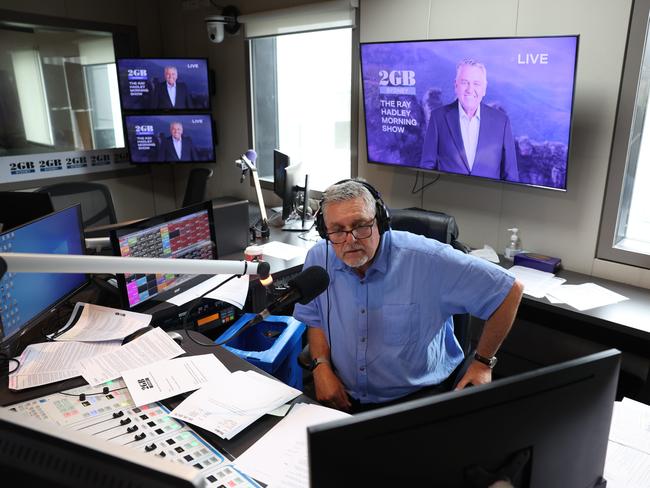
DR: The best match you ever called?
RH: Two years ago the grand final between Brisbane and Penrith was a great game because of Nathan Cleary. Cleary’s effort was just unbelievable. Right up alongside that I would have Johnathan Thurston’s grand final field-goal win in 2015, the Balmain and Canberra grand final in 1989 and then NSW against Queensland in State of Origin in 1994. But honesty, if you gave me six pages of the paper I could mention that many and still forget one.’’
DR: What about the best try you’ve ever called?
RH: Without a doubt Mark Coyne’s miracle try for Queensland in the 1994 Origin series at the Sydney Football Stadium. That was incredible. A close second is Mal Meninga’s try for Australia in 1990 at Old Trafford.
DR: Do you have a “pinch yourself” moment?
RH: I called the Rugby Union World Cup final win of Australia against England at Twickenham in 1991. That was the moment I was pinching myself. I was over there doing rugby league and they sent me over to Twickenham to call the final.
DR: Your favourite stadium to call from?
RH: These days CommBank Stadium (Parramatta) or the brand new Allianz Stadium (SFS). The view down the field is unrivalled.
DR: The worst place you’ve called a big game?
RH: We did an Origin match at Lang Park before it became Suncorp Stadium once and we had to pass Sir Edmund Hillary (mountaineer legend) twice on the way to the broadcast box. I think the architect forgot to include broadcast boxes in the design and so we just ended up out the back of the grandstand and as high as you could imagine.
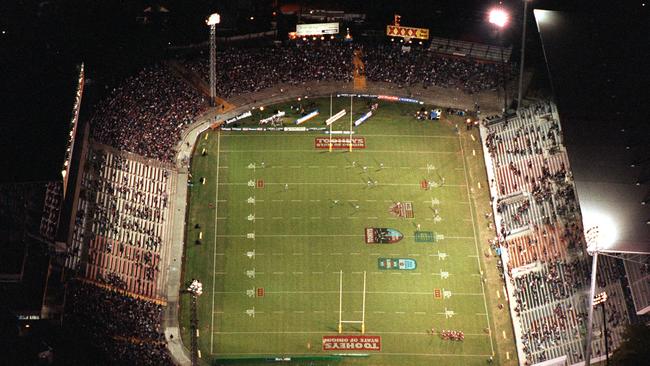
DR: The worst stadium to call any game from?
RH: Newcastle before it became McDonald Jones Stadium. To get to the broadcast area we had to use a ladder to get up through a corporate box. But when we went up there, they’d pull the ladder down. There were no toilet facilities, so we had to call out to the corporate box to put the ladder back to go for a pee.
DR: Can you declare the greatest player you’ve called?
RH: I think Nathan Cleary will eventually be the greatest. But of the ones I called, I wouldn’t be able to split Wally Lewis, Andrew Johns, Johnathan Thurston and now this kid, Cleary. Of course, there were champions among them too with Billy Slater, Darren Lockyer, Greg Inglis and the list goes on. But the people you could always count on when things were a bit tough, were those first four I mentioned.
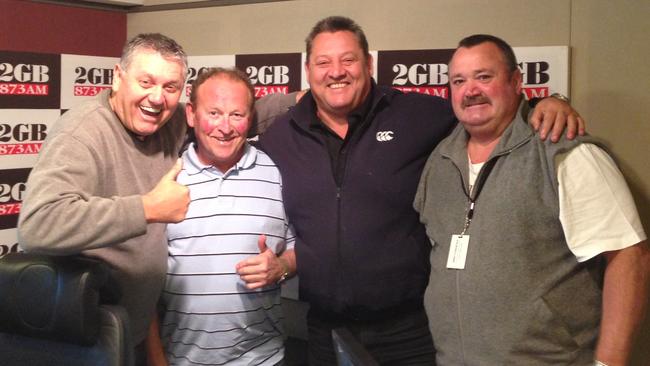
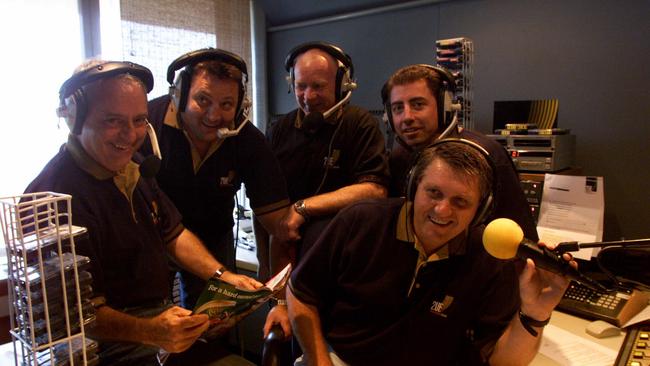
DR: The Continuous Call Team was such a huge part of your life. Rattle off some of the names that have been part of that success?
RH: It began with me and Ray Price and then Chippy (Peter Frilingos) and Bozo (Bob Fulton) joined. But we had Jack Gibson, Wayne Pearce, Peter Jackson, Laurie Daley, David Morrow, Greg Alexander, Paul Sironen … the list goes on.
DR: Do you view the Continuous Call Team as one of your great legacies?
RH: Well, if you pluck out callers today who started calling with us as young blokes, Andrew Voss (Fox League) and Andrew Moore (ABC) came through. Voss was working at the Sydney Turf Club and said he wanted to be a rugby league broadcaster. One thing he had was a tremendous work ethic.
DR: Funniest moment on air?
RH: Brookvale Oval, Darryl Brohman did an audition for the Commonwealth Games on air. He did the swimming call and the weightlifting call and “Blocker” (Steve Roach) and I lost it. The other time was when we were on air and Blocker said we were calling from Noumea instead of Leumeah at Campbelltown Stadium.
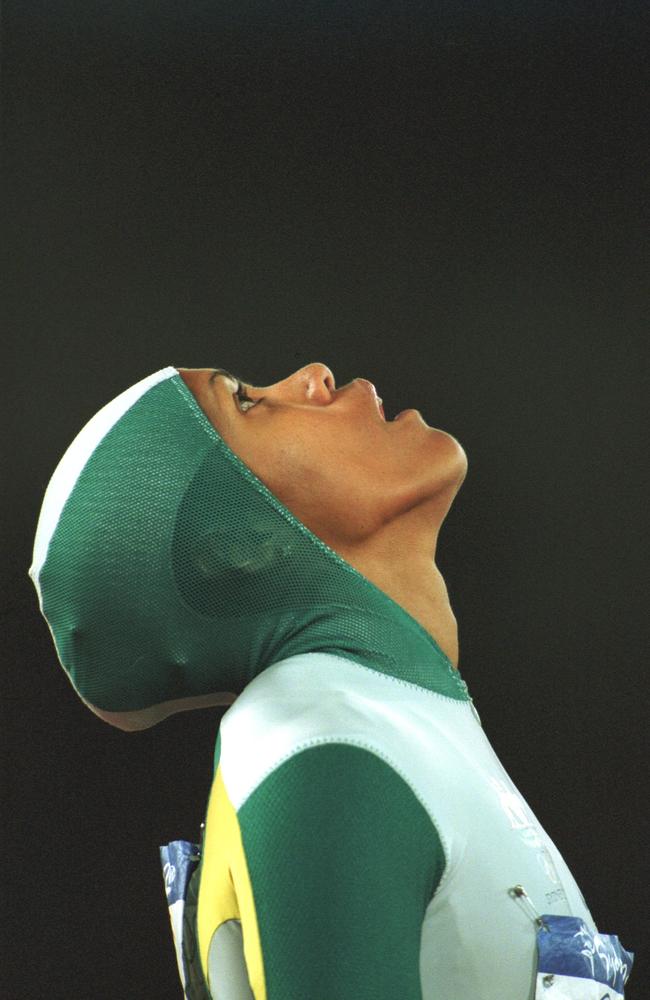
DR: Favourite sporting moment?
RH: Without doubt Cathy Freeman in 2000, to be able to call that is my favourite. The week before that I was able to call Ian Thorpe and the men’s 4x 100m gold in the swimming. It won’t matter what I do in the future, Cathy Freeman would be the clear highlight.
DR: Ray, what’s the biggest change to radio broadcasting over the past 30 years?
RH: The internet. Getting information immediately has changed the game. You get statistics instantly, you get breaking news instantly and the other major change, which I’m happy to claim, is broadcasting from studios. Everyone thought it was stupid, you’ve got to be at the game. Then during Covid, everyone started doing it. We’d been doing it for 10 years before at the Continuous Call Team. We’d call it the interactive studio. The only interactive thing about it was it was a studio with a microphone and a TV. Now they all do it.
DR: The best stink, you’ve witnessed and I don’t mean the ones you may have been involved in?
RH: I was working on the sideline in 1985 for Col Pearce and Frank Hyde at Lang Park when Greg Dowling and Kevin Tamati went at each other like two wild animals up the tunnel in a Test match. I was right in front of it. That was the best stink I’ve ever seen.
DR: What about press box pies Ray. I dare say you’ve enjoyed a few in your time, but who have you seen consume the most?
RH: Darryl Brohman has got everyone beaten hands down. He loves a pie, always has. As for the best press box spread, that comes from the Panthers, with fruit platters and the like, but what callers really want is a place that is easy to get a good cup of tea.
DR: Expansion of the competition Ray, are you a fan?
RH: I never used to be, but it’s the only way to grow the game both in participation and at a corporate level. PNG isn’t so much for rugby league, even though it’s a national sport, it’s strategically very important that we make sure other powers don’t get a foothold in our nearest neighbour being PNG. Rugby league should be pretty proud it’s the vehicle for that.’’
DR: Last one. You might be retiring, but will you still try and call a game in the future?
RH: No one has been banging on my door. If someone wants to give me a game a week I’d love it. I’d just love it, because I love the game.





